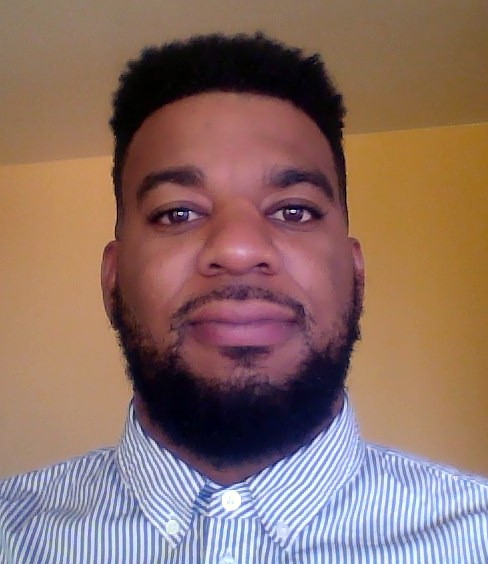SAN FRANCISCO – The United States Patent and Trademark Office (USPTO) granted trademark registration to Original Equity Group (OEG) for its EQUITY TRADE certification mark (U.S. Registration No. 6310040). Initially filed November 6, 2019, the mark was approved March 30, 2021.
OEG intends for the mark to help everyone along the supply chain by serving as an easily recognizable way for consumers to identify products, manufacturers, and retailers that are committed to increasing social equity.
“The certification mark [confirms] the goods provided have been produced by a business that meets the standards set by a U.S. state, county, or city social equity program that seeks to address social inequalities and policy concerns related to gender and sexuality, race, age, mental or physical disability, class, ethnicity, language, education, civil rights, socioeconomic status, or religion, by requiring that a business’s ownership structure, operations, employment practices, or charitable contributions demonstrate a commitment to justice and equality,” the official description states. “According to the [application/registration certificate], OEG may allow usage of the Equity Trade certification mark by businesses who meet their certification standards, which relate to social justice and equity.”
Lauren Mendelsohn, Esq., an attorney at the Law Offices of Omar Figueroa, assisted OEG with the registration and is listed as the attorney of record with USPTO.
“The Equity Trade certification program is significant because it is, to the best of our knowledge, the first time a certification mark indicating that a particular product has been produced by an equity business has been, not only created, but also officially recognized by the United States Patent and Trademark Office,” Mendelsohn said. “This will make it easier for consumers to seek out and buy products made by equity businesses, just as consumers currently look for certification marks and other indicators when shopping for organic, GMO-free or sustainably-produced goods. Moreover, because this certification mark is not specifically limited to cannabis goods or items within California but rather encompasses various kinds of consumer goods made by equity businesses anywhere in the United States, the impact will be wide-reaching beyond one particular industry or geographic location.”
mg reached out to Ed Brown, part of the leadership team at OEG, to learn more.

mg: How did you come up with the idea for the Equity Trade certification mark?
Brown: It was created in response to the challenges that equity applicants in San Francisco were having navigating the licensed cannabis marketplace in San Francisco and Oakland. Myself, Nina [Parks], and Ramon [Garcia] were working together organically and we shared in the frustration of lack of access for cannabis equity products. Equity brands could not get on the shelves at many local retailers. So, we asked ourselves, how could we increase their visibility to customers once they were able to get on a retail shelf? How could we bring attention to consumers who didn’t know what an equity product was? Having a product identifier just made sense to us.
Where did you go from there?
We actually began by providing education to would-be equity applicants. We brought in speakers who donated their time and knowledge and helped us build a six-workshop educational series for equity applicants in San Francisco.
After the education, we knew we needed to help equity businesses get on shelves. To do that, we knew we needed an identifier so retailers would trust that these were equity products and also the identifier would need to build trust for customers to locate these products on shelves. We knew that we needed more than just an identifier.
That’s where Omar Figueroa came in. His office helped us find a pathway to federal recognition and the USPTO approval. And they worked with us for two years—pro-bono. We would have never got [the approval] without Omar’s team. They treated us like a client. It’s a beautiful journey to be a part of. Selfless individuals coming together to advance social equity recognition.
People working together to support equity businesses sounds important to you.
We can all benefit if we help one another. Even Target is working on equity programs. If that big corporation can say, ‘We want to invest $2 billion in Black businesses’ brands,’ then large and small cannabis retailers can also offer support to social equity businesses.
That’s what we’re doing with the equity network we’re building. We’re trying to fill a small piece of the cannabis space with likeminded people; with allies and operators unified under one mark and working together in a commercially and community mutual beneficial ecosystem.
So, the trademark is about more than just supporting equity cannabis brands?
Yes. This is building on economic justice. Cannabis is just one way we’re trying to get that justice. Our Equity Trade [certification mark] isn’t just applicable for cannabis businesses and their products. You could have a baked good, such as a cupcake, and use the mark. It’s an avenue for all products created by social justice businesses. We hope that the Equity Trade mark demonstrates to the world what it looks like when marginalized groups are unified together in a mutually-beneficial ecosystem.
What’s next for the Equity Trade certification program?
We’re working on obtaining our 501 C (6) and building out a formal trade association. Seeking donations and allies from larger cannabis companies. We have future licensed cannabis events planned for 2021 to showcase Equity Trade brands. We are actively signing up equity trade brands.
How do you plan to protect the integrity of the Equity Trade certification mark?
We’re working with a company that has created a blockchain-based QR code that we can use with the mark. We saw a demo about six months back and became interested. The QR code can show everything—the farm a product came from, test results…all the data. We’ve already seen proof of concept and we’re in the testing stage with the company.
Is there anything else you’d like to add?
People should invest their time in what they are passionate about and really create the world that they wish to see. That’s where something good really comes from. For us, we’ll keep supporting social equity and creating the network that we wish to operate within.












